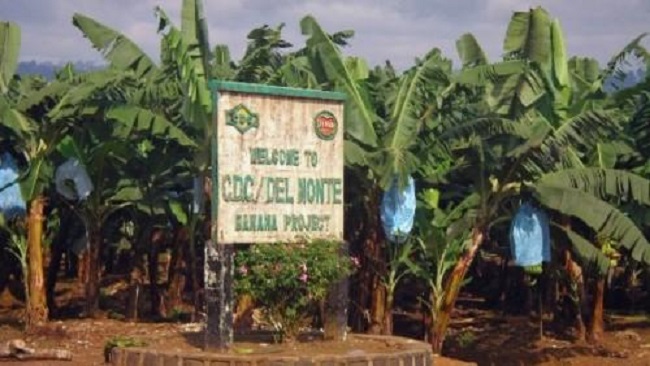CDC calls on plantation workers to return to Southern Cameroons
Cameroon’s second largest employer, the state-run Cameroon Development Corporation (CDC), is calling for thousands of plantation workers who fled the country’s separatist conflict to return to work. About half the company’s 20,000 workers left more than four years ago over unpaid wages and after deadly and brutal attacks. The company last week said it was safe to return, but workers are skeptical and say it should first rebuild homes destroyed or damaged in the conflict.
The CDC said it wants thousands of workers back at banana, palm oil, and rubber plantations in the restive Southwest region. Managers of the state-run giant on Monday visited towns and villages in the region to meet with workers who fled unrest in 2018 and ask them to return.
Cameroon Agricultural and Allied Workers Trade Union President Gabriel Mbene Vefonge, who was part of the delegation, said the corporation has promised to pay back wages to those workers who return.
“Most of them are doing mean (menial) jobs in many areas of this country, so we are calling them to come back,” he said. “Their security is being guaranteed by the state and we have seen in the last six months there is relative calm. For those who had wounds, we think that their wounds are healed, and the CDC management is taking care of them. Our members should come back to work.”
Cameroon’s military says it has chased the rebels from the plantations, which armed groups used for training camps.
In 2018, the rebels ordered workers to leave the plantations and warned that those who refused would be attacked.
Authorities say the armed groups chopped off fingers of scores of workers suspected of collaborating with the government and torched hundreds of homes, schools, and factories.
William Lekunja, a worker at a plantation in Meanja, said he escaped in 2018. He said he will only return if the company improves work and living conditions in villages damaged in the conflict.
“They cannot eat well because what they have is too meager,” he said. “Others who have gone there came back with testimonies. Their hospitals bills are paid by themselves, there is no good housing for them, no good water for them.”
Cameroon’s government says some of the company’s former workers are owed more than two years’ back pay. The company has vowed to pay back wages but says the conflict and exodus of workers led to a massive drop in production and sales.
The government says sales and revenue increased after about 2,000 workers returned in 2021 and 2022.
CDC general manager Franklin Ngoni Njie said if the remaining 8,000 workers return, the company’s sales will return to previous levels.
He said they would then be able to afford paying back salaries and reconstructing destroyed buildings.
“The solution is getting back to work,” he said. “Working and making money, money to help pay wages. To pay those who are working, just salaries alone, costs the corporation about 900 million francs. It is difficult to get that amount of money, but that notwithstanding, we will try to do what must be done to continue to operate.”
Cameroon’s separatist conflict was sparked in 2016 when predominantly English-speaking western regions protested discrimination by the country’s French-speaking majority.
Cameroon’s military responded with a crackdown and rebels took up arms claiming to defend the English-speaking minority.
The U.N. says the conflict has since left 3,500 people dead and 750,000 displaced.
Source: VOA




